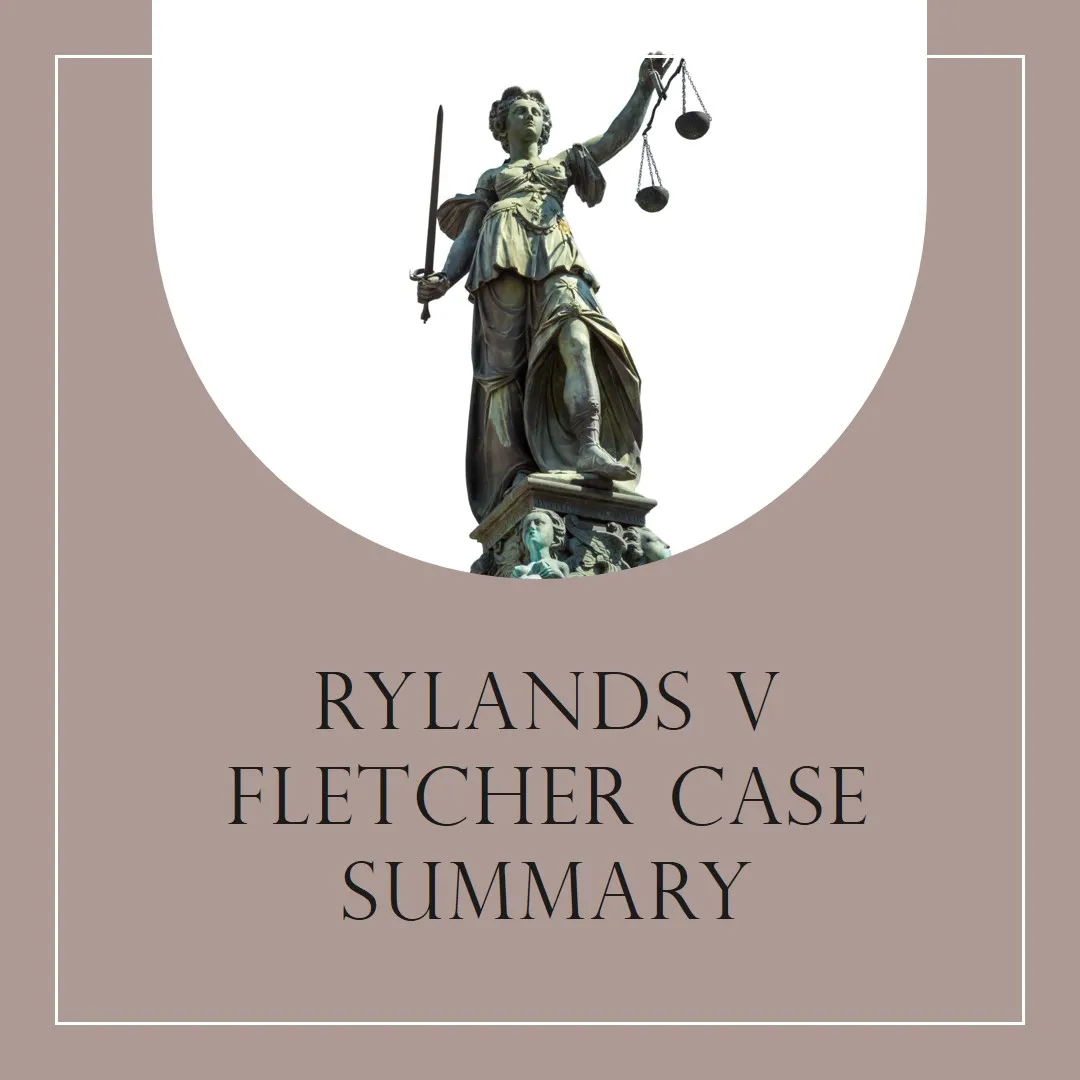
Rylands v Fletcher liability is a unique category of nuisance that imposes strict liability, meaning the defendant can be held responsible even if they didn't act carelessly or recklessly, and regardless of any lack of fault or negligence on their part.
Rylands v. Fletcher (1868) LR 3 HL 330
Facts
Rylands, a mill owner, constructed a reservoir on his land to supply water to his mill. Fletcher, a coal mine owner, operated a mine on adjacent land. Unknown to Rylands, old and disused mine shafts existed under the site of the reservoir. When water from the reservoir filled, it broke through the shafts, flooding Fletcher’s mine, causing significant damage.
Issue
Is a landowner strictly liable for damage caused by something brought onto their land that escapes and causes damage to a neighbor’s property, even if the landowner was not negligent?
Rule
The rule established by this case is known as the “Rule in Rylands v. Fletcher.” This rule states that a person who, for their purposes, brings and keeps on their land anything likely to do mischief if it escapes, must keep it at their peril. If they do not, they are prima facie answerable for all the damage which is the natural consequence of its escape.
Application
- Strict Liability: Rylands brought a large quantity of water onto his land by constructing a reservoir. This reservoir, containing water (a potentially dangerous substance), posed a risk of mischief if it escaped.
- Escape: The water escaped due to the old mine shafts that Rylands was unaware of, but this ignorance did not absolve him of liability.
- Non-Natural Use of Land: The construction of a reservoir was considered a non-natural use of the land. It introduced a potential hazard that would not ordinarily exist.
- Damage: The escape of the water directly caused substantial damage to Fletcher’s adjacent coal mine.
Conclusion
The House of Lords upheld the decision of the lower courts, establishing that Rylands was strictly liable for the damage caused to Fletcher’s property. This case established the principle of strict liability for certain inherently dangerous activities, regardless of the landowner’s intent or negligence.







One Comment